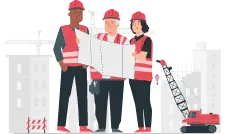Overview
Fatal vs Non‑Fatal Accidents in a Workmen’s Compensation Policy clarifies the distinction between workplace incidents that result in death and those causing injury, and explains how compensation benefits differ accordingly. Fatal accidents trigger death benefits, whereas non‑fatal accidents are handled under temporary or permanent disability provisions based on the nature and severity of injury.
Key Takeaways
-
The “3-Day” Threshold: For non-fatal accidents, the law has a “waiting period.” If an injury is minor and the worker is back on duty within 3 days, no compensation is payable. Once it crosses 3 days, the claim is triggered retrospectively from the first day.
-
No-Fault Liability: In 2026, the “No-Fault” principle is strictly enforced. Whether the accident was fatal or non-fatal, the employer cannot deny compensation by blaming the worker’s negligence, provided the accident occurred “in the course of employment.”
-
Commuting is now Covered: Following recent landmark rulings, fatal or non-fatal accidents occurring during a work commute—where a direct nexus to employment exists—are now compensable under the Act.
-
Dependents’ Rights: In a fatal accident, the law prioritizes “kinship coupled with dependency.” Widows, minor children, and widowed mothers are automatic beneficiaries. Others must prove they were financially reliant on the deceased.
-
Calculation Disparity: Permanent Total Disablement (Non-Fatal) actually pays a higher percentage (60%) than Death (50%). This is because a disabled survivor needs more funds for long-term care and medical maintenance than a deceased person’s estate.
Key Distinctions
Fatal Accidents
- Occur when a work-related injury or illness leads to the employee’s death.
- Entitle eligible dependents to death benefits, which typically include funeral expenses and periodic wage-loss payments.
- Such cases constitute a small share of total claims but represent a significant portion of compensation payouts due to long-term benefits to survivors.
Non‑Fatal Accidents
- Result in injuries that may be temporary or permanent, partial or total.
- Classified into:
- Temporary Total or Partial Disability (TTD/TPD): Compensation provides wage replacement (often two-thirds of wages) for the recovery period.
- Permanent Total (PTD) or Partial Disability (PPD): Structured payouts based on impairment severity, medical needs, and long-term wage-loss.
Why It Matters
- Distinction defines the type and duration of benefits—death claims follow survivor schedules, while injuries align with disability tables.
- A no-fault system allows swift claims processing regardless of negligence, as long as incidents fall within “course and scope of employment.
- Compensation aims to cover medical treatment, rehabilitation, and wage-loss, with strict distinctions between claim types to prevent errors and disputes.
The law prescribes all organizations employing workmen for their business operations have a workmen’s compensation policy. It is an employer’s legal responsibility to protect their workmen against physical injuries or death suffered during the course of employment. In case the employee faces death, disablement, or injury due to the nature of his/her work, the employer has to bear medical expenses. They become liable to pay compensation for the contingency suffered by the employee. A workmen compensation policy covers this liability faced by the employer and pays the compensation to the injured employee or the deceased’s workman’s heir. In this article, we will come to know the difference between fatal and non-fatal accidents in a workmen compensation policy read further.
Inclusions of WC policy
A workmen’s compensation policy covers the following instances –
- Accidental death
- Permanent total disablement
- Permanent partial disablement
- Temporary total disablement
- Diseases suffered by the employee due to the nature of work
- Any other type of personal injuries suffered due to work
These injuries, death, and disablements should have occurred due to an external, violent, and unforeseen accident. The claim for policy benefits arises only if any worker faces physical injuries due to accidents at the workplace.
Two types of accidents can happen – fatal and non-fatal.
Fatal Accidents:
A fatal accident is one where there is death or a high risk of losing the employee’s life. In case of a fatal accident, the employee might die or suffer severe disablement.
Non-fatal Accidents:
Non-fatal accidents, on the other hand, are those accidents that don’t have a high probability of death. In such cases, the employee or the workman survives. However, they have to suffer disabilities or any type of personal injury.
Both fatal and non-fatal accidents are covered by a workmen’s compensation policy, provided such accidents result in any of the above-mentioned contingencies. Fatal accidents may result in death, permanent total disablement, permanent partial disablement, or fatal injuries. If any of these contingencies occur, the workers’ compensation policy would pay the claim faced by the company.
In the case of non-fatal accidents, the covered contingencies might not occur. The employee might not face any type of disablement or injury from such accidents. If the employee or workman suffers from disablement that does not last for more than 3 days, the claim would not be paid. Many workmen’s compensation policies do not usually cover non-fatal accidents unless they cause a disablement lasting for more than 3 days.
Understanding the distinction between fatal and non-fatal accidents is crucial in workmen compensation cases. Proper knowledge helps ensure appropriate compensation and support for workers and their families during challenging times.
Summary: Fatal vs. Non-Fatal Accidents
Understand WC policy coverage for fatal & non-fatal accidents before buying
Companies should, therefore, understand the scope of coverages offered by a workmen’s compensation policy. They should take note of the types of contingencies covered under the policy. It is important to know the types of accidents covered by the policy. If the policy does not cover non-fatal accidents then the medical costs for injuries arising out of such accidents are not paid. However, since non-fatal accidents do not result in major injuries, the company can expect to face minimal liability, which it can usually pay on its own.
Therefore, a WC Insurance policy covers major instances of fatal and non-fatal accidents related claims that lead to financial distress for the worker and company.
FAQs
- What is a fatal accident under workmen’s compensation?
A fatal accident occurs when an employee dies due to a job-related injury or occupational disease. Dependents may claim death benefits including funeral costs and periodic wage compensation. - How do non‑fatal accidents differ in compensation terms?
Non‑fatal accidents lead to temporary or permanent disability, with compensation based on disability type—TTD or PPD—covering medical costs and wage replacement. - What benefits are available in fatal accident claims?
Eligible family members receive funeral expense cover plus periodic payments (commonly two-thirds of average wages) for a defined period or until certain conditions are met. - What compensation is payable for non‑fatal injuries?
Temporary disabilities are paid fortnightly until recovery; permanent disabilities are assessed and compensated as lump sum or scheduled payments based on impairment degree. - What does ‘no-fault’ mean in workmen’s compensation?
It means compensation is provided irrespective of liability—benefits are payable as long as the injury or death occurred in the course of employment. - How common are fatal versus non‑fatal claims?
Fatal claims are rare (under 0.5% of cash payments in many systems), while non‑fatal injury claims—especially PPD cases—constitute the majority of all claim payouts.
About The Author
Rahul Kumar
MBA Finance
With a wealth of experience in the insurance industry, Rahul is a seasoned writer specializing in articles related to workmen compensation policies (WC policies) for SecureNow. With 12 years of experience in the field, he has acquired in-depth knowledge and expertise in workmen compensation insurance, understanding its complexities and nuances. Their insightful articles provide valuable insights into the importance of WC policies for businesses and employees alike, offering practical advice and guidance on navigating the intricacies of insurance coverage. Trust him to deliver informative and engaging content, backed by years of experience and a passion for educating readers about insurance-related topics.





